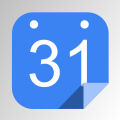Controlling XBMC with a Yocto-Display
 We showed you previously how to use a Yoctopuce screen to display information coming from Internet, such as an RSS feed or Google Calendar events. Today, we are going to show you how you can use a Yocto-Display to build an active control panel for an XBMC media center.
We showed you previously how to use a Yoctopuce screen to display information coming from Internet, such as an RSS feed or Google Calendar events. Today, we are going to show you how you can use a Yocto-Display to build an active control panel for an XBMC media center.
| 2 comments | Read more... |
Can you make a Yocto-Color blink?
![]() A question comes up quite often among users of Yocto-Color and of Yocto-PowerColor modules: Can you make the RGB led of these two modules blink automatically? This is not a crazy idea. When you see what a Yoctopuce relay can do, you can expect similar features with a Yoctopuce RGB led.
A question comes up quite often among users of Yocto-Color and of Yocto-PowerColor modules: Can you make the RGB led of these two modules blink automatically? This is not a crazy idea. When you see what a Yoctopuce relay can do, you can expect similar features with a Yoctopuce RGB led.
| No comment yet | Read more... |
Google Calendar on your Yocto-MaxiDisplay
 Some time ago, we found a post where someone had built a device showing his schedule on his office door using Google Calendar. We liked the idea and, this week, we are going to show you how to display your appointments of the day on your fridge door using a Yocto-MaxiDisplay and a YoctoHub-Wireless-SR.
Some time ago, we found a post where someone had built a device showing his schedule on his office door using Google Calendar. We liked the idea and, this week, we are going to show you how to display your appointments of the day on your fridge door using a Yocto-MaxiDisplay and a YoctoHub-Wireless-SR.
| 2 comments | Read more... |
About RegisterHub
![]() If you ever wrote the tiniest bit of code to manage Yoctopuce modules, you know the RegisterHub function. But do you really know all of its features? As years went by, this function benefited from additional features without anyone taking care to describe them in details. So, let's see how to use this function...
If you ever wrote the tiniest bit of code to manage Yoctopuce modules, you know the RegisterHub function. But do you really know all of its features? As years went by, this function benefited from additional features without anyone taking care to describe them in details. So, let's see how to use this function...
| No comment yet | Read more... |
LabVIEW and Yoctopuce sensors
![]() Week after week, more LabVIEW users discover our sensors and ask us if we will consider creating a full LabVIEW library for our devices. For now the only option was to write your own VI to invoke our command line library, which is neither very convenient nor very efficient. Therefore, we have decided to build a better solution, and we even have something for you to try. At this stage this is only a "proof of concept", but we are waiting for your feedback and your LabVIEW experience to make the final version of this new library as good as you would like it to be!
Week after week, more LabVIEW users discover our sensors and ask us if we will consider creating a full LabVIEW library for our devices. For now the only option was to write your own VI to invoke our command line library, which is neither very convenient nor very efficient. Therefore, we have decided to build a better solution, and we even have something for you to try. At this stage this is only a "proof of concept", but we are waiting for your feedback and your LabVIEW experience to make the final version of this new library as good as you would like it to be!
| One comment | Read more... |


